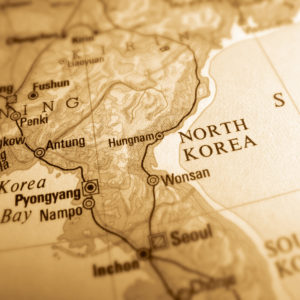North Korea’s missile test Saturday underscores that the rogue leaders of the unpredictable nation will present a top challenge for the Trump administration. The reality is, North Korea’s unprecedented and accelerating tempo of missile tests and nuclear detonations — 64 between 2009 and 2016 — shows no sign of abating.
Yet there’s another reality at work in North Korea, one that our policy cannot ignore. The hard truth is that North Koreans suffer widespread human rights violations and are denied fundamental freedoms. The 2014 United Nations Commission of Inquiry (COI) Report details this all too well. The report documents food shortages, political prison camps, public executions and detentions without due process.
Along with mass labor mobilization, these atrocities all favor the regime and its objectives over the rights of ordinary citizens. And an unprecedented wave of elite purges has led recently to numerous high-level defections.
Fortunately, the COI’s charges of crimes against humanity have galvanized world opinion. Nations can no longer ignore the issue when dealing with Pyongyang or those that interact regularly with it. And denuclearization can neither be pursued nor attained without addressing these abuses. Data from the Committee on Human Rights in North Korea shows that revenues from human rights abuses, like the export of slave labor, are suspected to fund nuclear proliferation activities.
Unfortunately, sanctions have not altered the regime’s behavior, either toward its own people or in building a nuclear arsenal. We cannot afford to be “strategically patient,” especially since North Korea will have scores of nuclear weapons by the end of this decade. And those weapons will be mated to ballistic missiles for delivery to regional and intercontinental targets, including perhaps our own West Coast.
Kicking the can down the road is not an option.
Instead, as a new George W. Bush Institute report argues, we need a more engaged North Korea policy that must equally pursue denuclearization and human rights improvement. That policy should include these recommendations:
(1) Integrate non-proliferation and human rights sanctions.
We must strengthen our sanctions strategy to isolate and weaken North Korea, including calling out political and military leaders for making money off selling nuclear technologies, illicit activities and human rights abuses.
(2) View China as part of the solution, but not the total solution.
We must remind Beijing of its responsibility to use its influence with its clients in Pyongyang to avoid provocations. At the same time, we must resist the temptation to subcontract the most urgent security issue in northeast Asia to China.
(3) Maintain denuclearization goals.
While remaining open to diplomatic options, we must insist that the outcome of negotiations include the eventual re-entry of the North into the Non-Proliferation Treaty regime.
(4) Stop horizontal proliferation.
We must unambiguously warn the North Koreans at the highest levels that the transfer of sensitive nuclear technology to another state or non-national actor cannot and will not be tolerated by the United States. We must draw a genuine red line.
(5) Remain open to diplomacy.
We must avoid making the goals of any negotiations the preconditions for entering those negotiations. We also must be wary of entering protracted negotiations where the North may continue to advance their nuclear or ballistic capability.
(6) Avoid preconceived notions about the format for negotiations.
Six party talks may be dead — or not — but the essential participants will be the United States and North Korea, whatever the formal structure may be.
(7) Sustain deterrence and reassure allies.
We must continue visible security consultations and exercises with friends and allies in the region. We must also continue quarterly cabinet or sub-cabinet level diplomatic coordination with our allies.
(8) Commit to unification.
We must take prudent steps with our allies to prepare for the realization of our ultimate goal of a unified Korea, whether through the slow transformation of the North Korean state, or its sudden collapse.
Dealing with North Korea will not be easy, but we cannot afford to simply manage the problem. As each of these recommendations indicate, we need to be clear in our policy, making sure our new strategy integrates human rights and security concerns.

